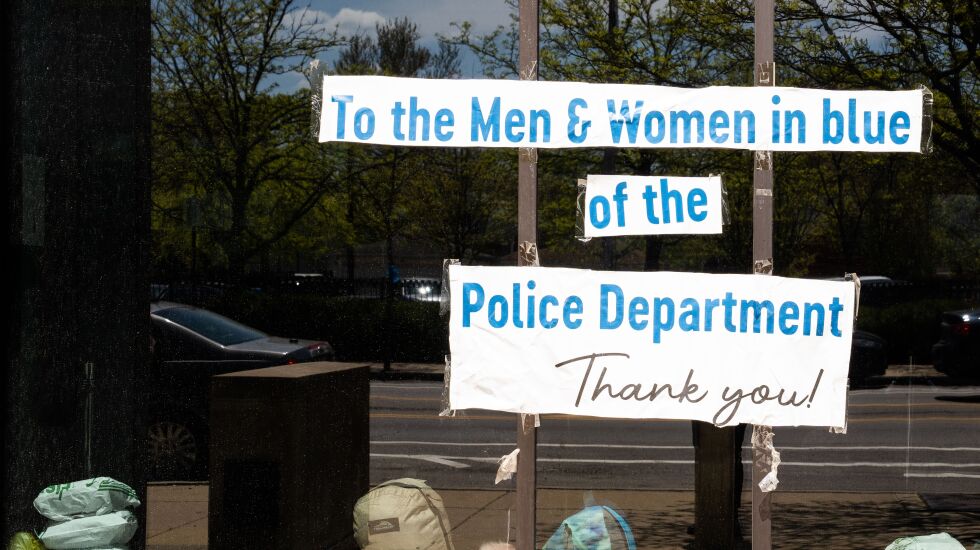
The humanitarian crisis caused by asylum-seekers descending on Chicago is “one of the most challenging” problems Mayor-elect Brandon Johnson will face, with no good options to house migrants and pay for their emergency care, according to his chief of staff.
Rich Guidice spent nearly 20 years running the Office of Emergency Management and Communications. Emergency response is his forte.
But Guidice said he has never seen an emergency quite like the more than 8,000 asylum-seekers who have poured into Chicago since September, with scores more on the way.
Chicago is literally out of money, space and time to handle the crisis.
“It’s one of the most challenging aspects we have in front of us. In 33-and-a-half years, it’s one of the most complicated situations I’ve ever had to deal with,” Guidice said last week.
“It’s happening quickly in a crisis that has been pushed in front of us. It will continue to challenge us for quite some time. It’s front-and-center on our agenda. We’ve got our hands full with this.”
Priority No. 1 for the new mayor is to find alternative space so asylum-seekers, including young families, no longer have to sleep on the floors Chicago’s police district stations.
Some of the stations are so crowded with migrants, everyday Chicagoans can’t even make their way to the front desk to file a police report.
“Police Departments cannot be a place for asylum-seekers. We’re identifying some Park District [fieldhouses and facilities to use] in the immediate [future]. But that brings up other challenges. People rely on parks for entertaining their kids. Setting up programs and keeping them busy — especially in spring and summer,” Guidice said.
“In emergency situations, we can do anything. We can switch gears quickly and adapt. In this situation where it’s more prolonged, it’s more challenging. We still have asylum-seekers that are in our shelters since early September.”
Guidice said the search for large shelter alternatives has already included Metro South Hospital, the Chicago Tribune printing plant complex at 700 W. Chicago Ave., a facility at 75th and Pulaski and a host of shuttered Chicago Public Schools that have been “out of commission for a long time.”
Most — with the exception of Wadsworth Elementary and South Shore High School — turned out to be too costly, he said. South Shore residents, however, have filed a lawsuit to stop using the high school building as a shelter.
“Those [two] seemed to be something that we could turn around in a relatively short time. That’s why those decisions seemed like they happened very quickly. When you have a few hundred people that we know are coming our way within a couple of days, we have to react quickly, which caused the appearance that the city wasn’t recognizing some of the community aspects,” Guidice said.
“We certainly recognize the communities that were impacted by it and how they felt it was handled. I can certainly appreciate that. We’re gonna have to do a better job of communicating to residents in these areas in a short period of time.”
Shuttered big-box stores also are “something we’re gonna have to look at investing in …Getting the infrastructure up to a safe space,” Guidice said.
The decision by outgoing Mayor Lori Lightfoot to declare a state of emergency holds out the possibility of calling out the National Guard.
Guidice said he would “not be opposed” to using the National Guard, nothing the city has “used them in the past for this operation.”
“We had ’em, I think, for about 45 or 60 days early on. I found them to be very helpful. I found them to be very orderly and structured in a way that was very useful, especially early on. We were able to plug them in. It worked out nicely,” he said.
The $51 million in surplus funding the City Council’s Budget Committee has agreed to transfer to the migrant crisis will carry Johnson only through June.
“That’s another aspect of this very complicated situation. ... There’s no money set aside for something of this magnitude,” Guidice said.
“Short of a federal disaster declaration, there is no ability to tap into other funds.”







